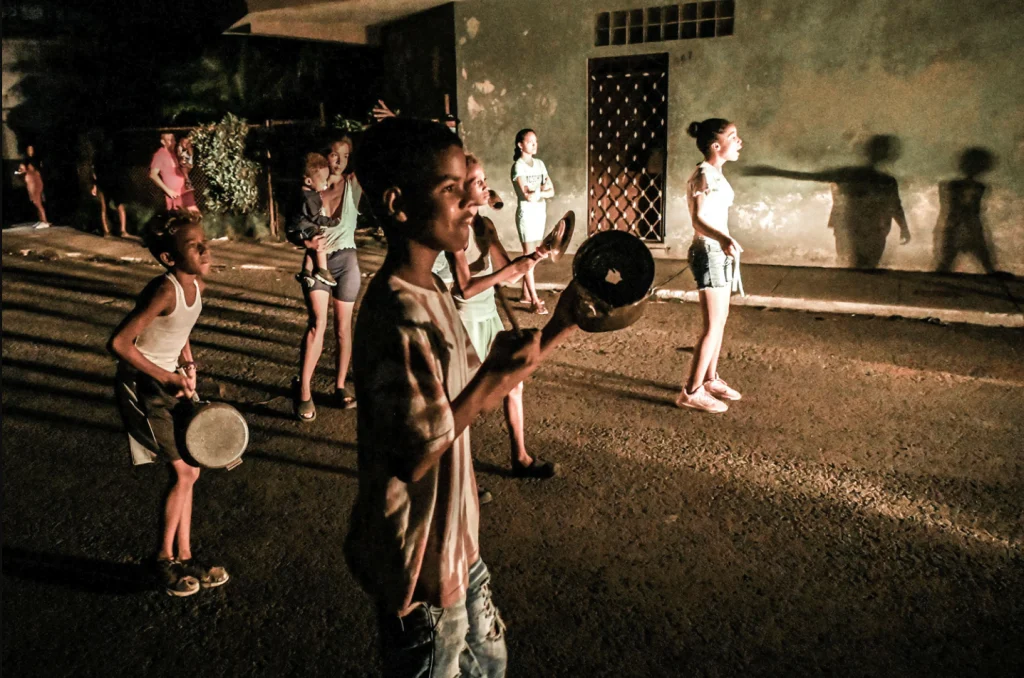
In Cuba, the official discourse of intolerance is directly intertwined with the dehumanization of those perceived as “others”, thus feeding a climate of political repression. This phenomenon is rooted in historical events that span more than six decades.
By Michael Lima Cuadra (latinoamerica21)
HAVANA TIMES – Recent derogatory language from state-controlled media in Cuba, targeting protesters demanding ‘electricity, food’ and ‘freedom’ in Santiago de Cuba and elsewhere, underscores the strong link between official dehumanizing discourse and repression in the country. An article titled “No One Can Take Away Our Peace,” published on March 23, 2024, by the Sierra Maestra newspaper, branded protesters as “pitiful people” and “parasites,” inciting public “repudiation.” This intolerant rhetoric swiftly led to repression, with 19 to 41 protesters arrested in March 2024 and 374 repressive actions against activists. This pattern reflects a longstanding tradition of using official discourse to justify human rights violations in Cuba.
A clear link exists between the official discourse of intolerance, the dehumanization of perceived ‘others’, and political repression, drawing on historical events spanning over six decades. The lack of freedom to access the media and the absence of an independent judicial system further exacerbate this harmful cycle, leaving individuals defenseless against regime abuses.
Invisibilization of the Individual in the Cuban Regime’s Discourse
For over six decades, the Communist Party of Cuba and the ruling elite have denied fundamental human rights to the Cuban people. Unlike the Universal Declaration of Human Rights, which puts the individual at the epicenter of inalienable rights, the Cuban regime emphasizes state control, demanding absolute loyalty and maintaining total control. Consequently, it violates fundamental rights and renders individuals invisible.
For the architects of totalitarianism in Cuba, such as Ernesto ‘Che’ Guevara, the concept of the ‘New Man‘ or ‘New Mass Man,’ which would be the archetype of the new regime supporter, represented an individual closely integrated with the masses, devoid of independent thought and individuality. Fidel Castro, through his rhetoric demanding unconditional support for the system, famously told intellectuals and artists in 1961, “within the Revolution, everything goes; against the Revolution, nothing.” Castro also actively promoted the suppression of any dissenting voice to his regime. His statement on January 2, 1961, delivered during a speech in Civic Square, encapsulated this approach: “With the Revolution, there is no alternative: either the counterrevolution annihilates the Revolution, or the Revolution annihilates the counterrevolution.” This declaration would become the cornerstone of the suppression of dissenting ideas in Cuba for decades to come.
The Interplay of Intolerance Discourse and Repression in Cuba
In Cuba, dehumanizing language directed at individuals seen as different, based on political beliefs, religion, sexual orientation, or lifestyles, has long correlated with widespread repression. This pattern emerged as early as 1959, notably evident in the treatment of dissenting students at the University of Havana in the regime’s early years. Pejorative language, targeting individuals with dissenting views and labeled as “pepillos,” “gusanos” (worms), and “counterrevolutionaries,” was directed at young Catholics and university students who stood up in support of university autonomy and opposed state control of the institution, as well as the pro-Soviet and totalitarian transformation of the emerging regime.
In parallel with this intolerant rhetoric, the University of Havana swiftly became militarized. Beginning in October 1959, university brigades were deployed on campus to monitor dissent and suppress public demonstrations, focusing on the ‘escalinata universitaria,’ a place of strong symbolism as it was where protest marches against dictat


